Tags
Africa, America, Asia, barrister, C. J. Phipps, California, Capul, Cavendish, Columbian Encounter, Comte de Buffon, Daines Barrington, Don Francisco Antonio Mourelle, English, Europe, French, Georges-Louis Leclerc, Greenland, Labrador, London, Lord Mulgrave, Magna Carta, Manilla, Mozart, natural history, naturalist, New Guinea, New World, Nichols, potatotes, Schouten, science, Spanish, tobacco, Turkey, Wales, White
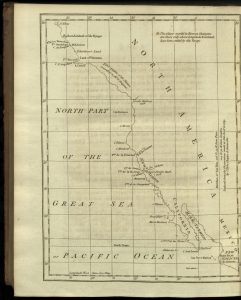
“What we saw of the country leaves us no doubt of its fertility, and that it is capable of producing all the plants of Europe. In most of the gullies of the hills there are rills of clear and cool water, the sides of which are covered with herbs (as in the meadows of Europe) of both agreeable verdure and smell. Amongst these were Castilian roses, smallage, lilies, plantain, thistles, camomile, and many others. We likewise found strawberries, rasberries, blackberries, sweet onions, and potatoes, all which grew in considerable abundance, and particularly near the rills. Amongst other plants we observed one which much resembled percely (though not in its smell), which the Indians bruised and eat, after mixing it with onions.”
— Daines Barrington translating Don Francisco Antonio Mourelle’s Journal of a Voyage, in 1775, to Explore the Coast of America, northward of California
Miscellanies
Daines Barrington (1727-1800)
London: Printed by J. Nichols, sold by B. White, 1781
First edition
AC7 B34 1781
Daines Barrington was an English barrister and naturalist. After filling various posts, he was appointed a judge in 1757, in Wales. He was noted for his observations on the Statutes, chiefly the more ancient, from Magna Carta to 21st James I (1766). Many of Barrington’s writings were published by the Royal and Antiquarian Societies, of which he was a member. Some of these papers were collected by Barrington in this volume.
Miscellanies contains the first publication of Don Francisco Antonio Mourelle’s Journal of a Voyage, in 1775, to Explore the Coast of America, Northward of California… translated from a Spanish manuscript. This is the only contemporary source in English of the voyage exploring the northwest coast of America.
Also in this volume is “The Probability of Reaching the North Pole” (1775), a tract reporting on the results of the northern voyage of discovery undertaken by Captain C. J. Phipps, who later became Lord Mulgrave. The report discussed the floating ice found in high northern and southern latitudes. For this and other reasons, it was especially helpful to whaling captains who frequented the coasts of Greenland and Labrador.
Included in Miscellanies is a biography of Mozart, various essays on natural history, and a discussion on whether the turkey was known in Europe before the Columbian Encounter. Barrington concluded that it was, as were tobacco and potatoes, contradicting the great French naturalist and encyclopedist Georges-Louis Leclerc, Comte de Buffon (1707-1788).
“If M. de Buffon had not thus excluded Asia and Africa, the controversy would have turned out, as if the point to be discussed was, whether tobacco and potatoes were not peculiar to the New World. Now it is certan that both these plants are of American growth, but not exclusively so, for in 1584, Cavendish received potatoes from the inhabitants of Capul, which is an island not far from Manilla; and in 1616, Schouten was supplied with tobacco from the coast of New Guiney.”
Science was and is as political as war — England was at war with France during this time. And it never occurred to either de Buffon or Barrington that indigenous peoples might have crossed oceans long before the Europeans did.

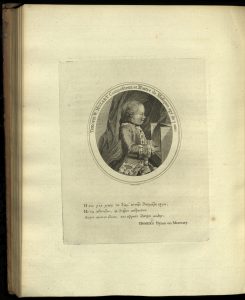
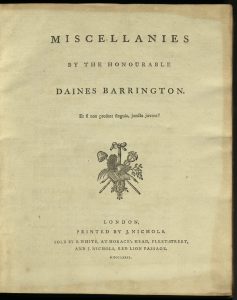
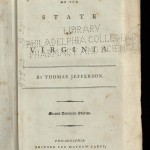
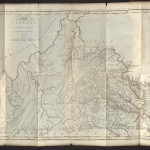
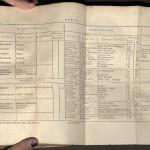
You must be logged in to post a comment.